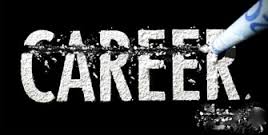
Other treatment for Drug abuse and mental health are equally very important in the treatment process. Addiction can be very depressive and all treatment mechanisms must be explored.
In our previous discussions we have dealt with several means and ways of administering treatment for substance abuse and mental health problems. However, when dealing with matters of this magnitude every possibility of nailing the problem must be embraced because our objective is to eliminate the problem in it’s entirely. That is why we want to take time and discuss other treatment for drug abuse and mental health problems in this article.
It is always said that a problem shared is half solved. That is the principle applicable here with groupings. And just like with other addictions, groups are very helpful, not only in maintaining sobriety, but also as a safe place to get support and discuss challenges and experiences. Sometimes treatment programs for co-occurring disorders provide groups that continue to meet on an aftercare basis. Your doctor or treatment provider may also be able to refer you to a group for people with co-occurring disorders.
It is important to note that while it’s often best to join a group that addresses both substance abuse and your mental health disorder the twelve-step groups for substance abuse can also be helpful besides today such services are well spread globally making accessibility much easier. These free programs, facilitated by peers, use group support and a set of guided principles like the twelve steps to obtain and maintain sobriety. Doctor Akoury advices that even as you opt for these groups you must make sure that the group is embracing the idea of co-occurring disorders and psychiatric medication. This is very important for you because at this time all you need is a place where you will feel safe and not where you will feel pressured in any way.
Getting sober is only the beginning. Your continued recovery depends on continuing mental health treatment, learning healthier coping strategies, and making better decisions when dealing with life’s challenges. And this you can achieve by adopting the following:
Stress management – Even though stress is inevitable in this generation, it’s very important to have healthy coping skills so that you can deal with stress without turning to alcohol or drugs. Stress management skills go a long way towards preventing relapse and keeping your symptoms at bay.
Identify your triggers and have an action plan – If you’re coping with a mental disorder as well, it’s especially important to know signs that your illness is flaring up. Common causes include stressful events, big life changes, or unhealthy sleeping or eating. At these times, having a plan in place is essential to preventing drug relapse. Who will you talk to? What do you need to do?
Get therapy or stay involved in a support group – Your chances of staying sober improve if you are participating in a social support group like Alcoholics Anonymous or Narcotics Anonymous or if you are getting therapy.
Follow doctor’s orders – Once you are sober and you feel better, you might think you no longer need medication or treatment. But arbitrarily stopping medication or treatment is a common reason for relapse in people with co-occurring disorders. Always talk with your doctor before making any changes to your medication or treatment routine.
Practice relaxation techniques – When practiced regularly, relaxation techniques such as mindfulness meditation, progressive muscle relaxation, and deep breathing can reduce symptoms of stress, anxiety, and depression, and increase feelings of relaxation and emotional well-being.
Healthy eating habits – Start the day right with breakfast, and continue with frequent small meals throughout the day. Going too long without eating leads to low blood sugar, which can make you feel more stressed or anxious.
Exercise regularly – Exercise is a natural way to bust stress, relieve anxiety, and improve your mood and outlook. To achieve the maximum benefit, aim for at least 30 minutes of aerobic exercise on most days.
Get enough sleep – People often ignore sleeping because of the pressures of work and economic hardship however lack of sleep can exacerbate stress, anxiety, and depression it is therefore prudent that you sleep for 7 to 9 hours of quality sleep a night.
Other treatment for Drug abuse and mental health: Helping a loved one with a substance abuse and mental health problem
Helping a loved one with both a substance abuse and a mental health problem can be a roller coaster. Resistance to treatment is common and the road to recovery can be long. The best way to help someone is to accept what you can and cannot do. You cannot force someone to remain sober, nor can you make someone take their medication or keep appointments. What you can do is make positive choices for yourself, encourage your loved one to get help, and offer your support while making sure you doesn’t lose yourself in the process. You could take either of the following in helping your loved ones:
Seek support – Dealing with a loved one’s dual diagnosis of mental illness and substance abuse can be painful and isolating. Make sure you’re getting the emotional support you need to cope. Talk to someone you trust about what you’re going through. It can also help to get your own therapy or join a support group yourself.
Set boundaries – Be realistic about the amount of care you’re able to provide without feeling overwhelmed and resentful. Set limits on disruptive behaviors, and stick to them. Letting the co-occurring disorders take over your life isn’t healthy for you or your loved one.
Educate yourself – Learn all you can about your loved one’s mental health problem, as well as substance abuse treatment and recovery. The more you understand what your loved one is going through, the better able you’ll be to support recovery.
Be patient – This is very important because recovering from a dual diagnosis doesn’t happen overnight. It is an ongoing process that can take some times may be months or years, and relapse is common. Ongoing support for both you and your loved one is crucial as you work toward recovery. All these are just some guidelines to help you offer better support to your loved ones. And even as follow these guidelines it is still very important that you seek for the services of the experts in this discipline. You can reach doctor Akoury on phone today to schedule for an appointment with her and she will be of great help to you and your loved ones as well.











